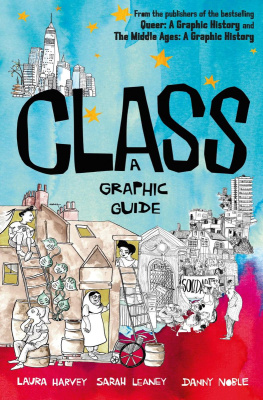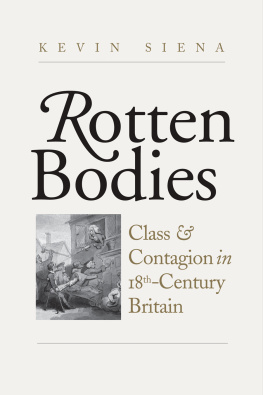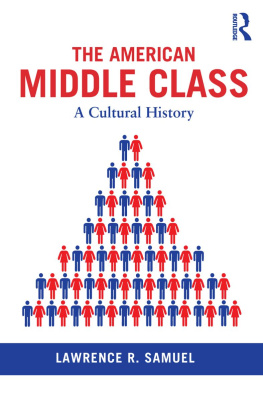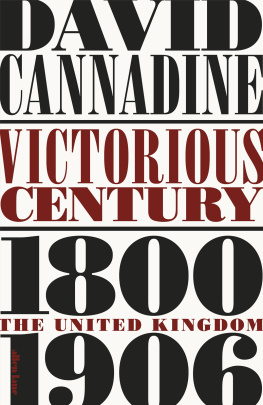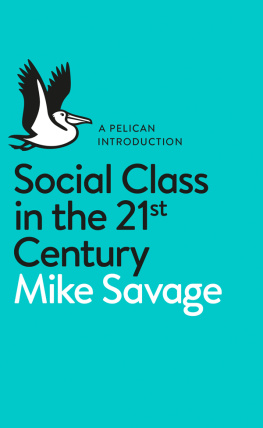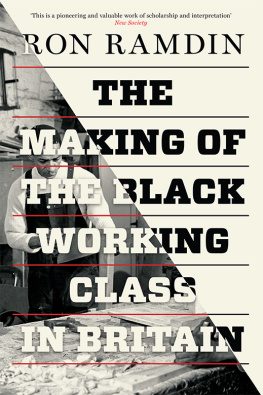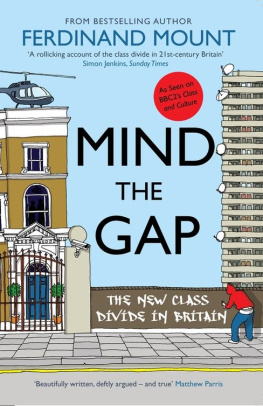ABOUT THE AUTHOR
David Cannadine was born in Birmingham in 1950, and educated at the universities of Cambridge, Oxford and Princeton. From 1975 to 1988, he was a Fellow of Christ's College, Cambridge, and University Lecturer in History and has taught at Columbia University, New York. He is now Director at the Institute of Historical Research, University of London. He is the editor and author of many acclaimed books, including The Decline and Fall of the British Aristocracy, which won the Lionel Trilling Prize and the Governors' Award; Aspects of Aristocracy; G. M. Trevelyan; The Pleasures of the Past; and History in Our Time. He is a member of the Editorial Board of Past and Present, and he is General Editor of the Penguin History of Britain series. He writes regularly for newspapers and reviews in London and New York, and is a well-known broadcaster on radio and television.
Aspects of Aristocracy, G. M. Trevelyan, The Pleasures of the Past and History in Our Time are all published in Penguin.
Class in Britain
David Cannadine

PENGUIN BOOKS
PENGUIN BOOKS
Published by the Penguin Group
Penguin Books Ltd, 80 Strand, London WC2R 0RL, England
Penguin Putnam Inc., 375 Hudson Street, New York, New York 10014, USA
Penguin Books Australia Ltd, 250 Camberwell Road, Camberwell, Victoria 3124, Australia
Penguin Books Canada Ltd, 10 Alcorn Avenue, Toronto, Ontario, Canada M4V 3B2
Penguin Books India (P) Ltd, 11 Community Centre, Panchsheel Park, New Delhi 110 017, India
Penguin Books (NZ) Ltd, Cnr Rosedale and Airborne Roads, Albany, Auckland, New Zealand
Penguin Books (South Africa) (Pty) Ltd, 24 Sturdee Avenue, Rosebank 2196, South Africa
Penguin Books Ltd, Registered Offices: 80 Strand, London WC2R 0RL, England
www.penguin.com
First published by Yale University Press 1998
Published in Penguin Books 2000
Copyright David Cannadine, 1998
All rights reserved
The moral right of the author has been asserted
Except in the United States of America, this book is sold subject to the condition that it shall not, by way of trade or otherwise, be lent, re-sold, hired out, or otherwise circulated without the publisher's prior consent in any form of binding or cover other than that in which it is published and without a similar condition including this condition being imposed on the subsequent purchaser
ISBN: 978-0-14-192780-0
For My Colleagues and Friends in the Department of History, Columbia University, 198898, in Admiration, Gratitude and Affection
The main message of this book is that in studying class one cannot escape from history.
(A. Marwick, Class: Image and Reality in Britain, France and the USA since 1930 (London, 1980), p. 363)
The emergence of class is one of the great themes, perhaps the great theme, of modern English social history.
(K. Wrightson, Estates, Degrees and Sorts: Changing Perceptions of Society in Tudor and Stuart England, in P. Corfield (ed.), Language, History and Class (Oxford, 1991), p. 31)
I had originally called this book The Fall of Class. There is a powerful sense in which class may be said to have fallen.
(P. Joyce, Democratic Subjects: The Self and the Social in Nineteenth-Century England (Cambridge, 1995), p. 2)
The appropriate discipline for studying class is not sociology but rhetoric.
(P.N. Furbank, Sartre's Absent Whippet, London Review of Books, 24 February 1994, pp. 267)
Nobody knows for sure what the word class means.
(P. Fussell, Caste Marks: Style and Status in the U.S.A. (London, 1984), p. 24)
Contents
Preface
It is widely believed, both in Britain and abroad, that the British are obsessed with class in the way that other nations are obsessed with food or race or sex or drugs or alcohol. According to John Betjeman, it is that topic all-absorbing, as it was, is now and ever shall be, to us CLASS .
Class, Ringen seems to be implying, is rather like sex: it is to some extent in the eyes of the beholder, and in the British case, takes place at least as much inside the head as outside. This book is written in full agreement with those views, and seeks to open up those minds closed to class of which Stein Ringen complains.
As such, it can be read in a variety of ways, and by a variety of audiences. At one level, it is an interim report from the historiographical battle front: an account of what historians have been thinking (or increasingly not thinking) about class during a twenty-year period which has seen the collapse of Communism as a system of would-be world dominion and Marxism as a system of would-be world explanation and, more domestically, the rise and fall of Thatcherism, the lingering aftermath of John Major, and the more bracing advent of New Labour. Writing against, and responding to, this changing national and international background, many scholars have concluded that class doesn't matter any more: which seems, to put it mildly, rather odd. It is not a conclusion which I (or most Britons) share. At another level, this book attempts to provide an account of the different senses of social identity, as they have evolved, competed and changed in the greater British world across the last three centuries, identities for which the word class is both the best but also the most misleading shorthand term. As such, it is an attempt to write genuinely British history (though I am well aware how far it falls short of that objective), and to produce a new master narrative of class, built not around one (Marxist) identity, but around multiple identities. Finally, it is written to provide an historical perspective on the contemporary debate about the meaning and importance of class in Britain, and to offer some suggestions as to what would have to be done to achieve a classless society, assuming and this is a very large and debateable assumption that such a society is either possible or desirable.
This book breaks new ground in that it tries to sketch out a history of class as the history of changing (and unchanging) ways of looking at society, rather than as the more familiar history of changes (or lack of change) in society itself. It is concerned with economic history in that it recognises there have been many developments in what Marx would have called the mode of production: but it is mainly interested in assessing their impact on the ways society has been seen rather than their impact on society itself. It is concerned with social history, not as the old grand narratives of class formation, class consciousness and class conflict, narratives around which the law of diminishing returns long ago seems to have set in, but rather as the history of the varied and varying ways that Britons envisaged and described their social worlds. And it is concerned with political history, not as an account of ministerial manoeuvring and government administration, but as a study of the visions of society entertained by British politicians, and of the ways in which they have conceived their task to be that of imposing their visions of the people on the people. In short, this book hopes to offer a history of class primarily as a cultural history of the ways in which Britons observe and understand, think about and discuss, the unequal society to which they belong. It is not yet another book about toffs and nobs, social climbers, or working-class heroes.
When Jilly Cooper published her account of Class in 1979 (of which more later), she admitted herself very aware of the inadequacies of what she had written. The subject, she went on, is so vast and so complex that I have only touched on a few aspects which seemed important to me.
Next page

